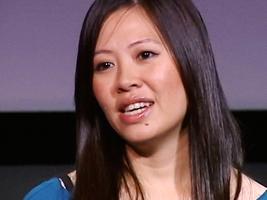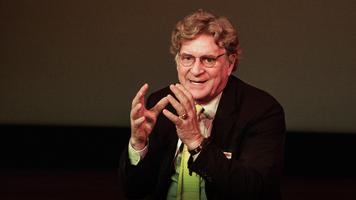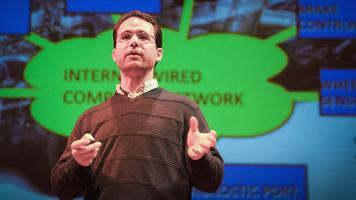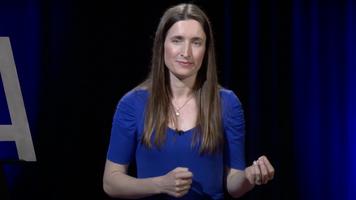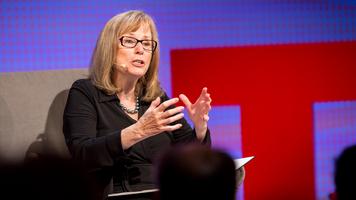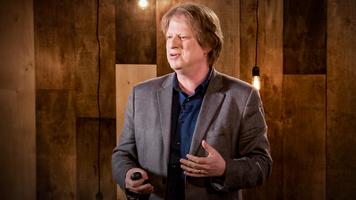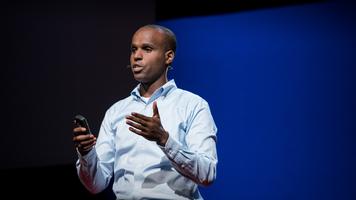Tan Le: A headset that reads your brainwaves
Tan Le: My immigration story
Tan Le: How does the brain work in everyday situations?
Li Wei Tan: The fascinating science of bubbles, from soap to champagne
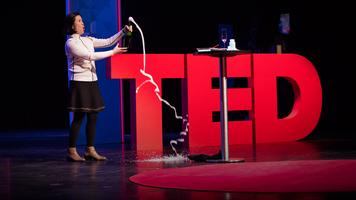
In this whimsical talk and live demo, scientist Li Wei Tan shares the secrets of bubbles -- from their relentless pursuit of geometric perfection to their applications in medicine and shipping, where designers are creating more efficient vessels by mimicking the bubbles created by swimming penguins. Learn more about these mathematical marvels an...
Laura L. Dunn: It's time for the law to protect victims of gender violence
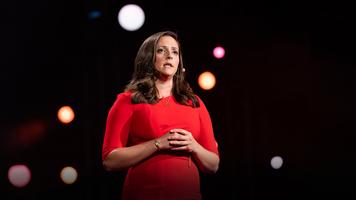
To make accountability the norm after gender violence in the United States, we need to change tactics, says victims' rights attorney and TED Fellow Laura L. Dunn. Instead of going institution by institution, fighting for reform, we need to go to the Constitution and finally pass the Equal Rights Amendment, which would require states to address g...
Stan Lee: What makes a superhero?
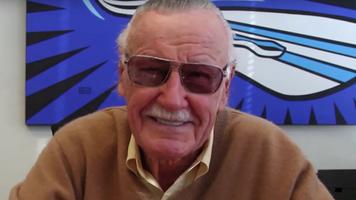
As the creator of a large chunk of the Marvel Universe, Stan Lee knows a thing or two about conjuring new superheroes from thin air. In this instructional and charmingly idiosyncratic talk, Lee shares a few lessons on how to write your own superpowered characters and deploy them in stories that connect with the largest possible audience.
Saamra Mekuria-Grillo: Yes, you can be an entrepreneur too
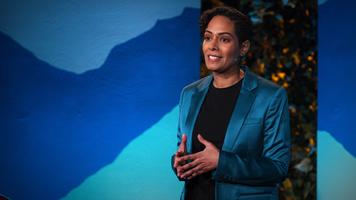
Who gets to be an entrepreneur? Saamra Mekuria-Grillo says the image we most commonly see — a guy in a hoodie — is a limiting representation of entrepreneurial success. She highlights the importance of young Black people seeing entrepreneurship as a possibility for themselves and explains the key to making the field more inclusive.
Alexander Leitner: Can time be wasted?
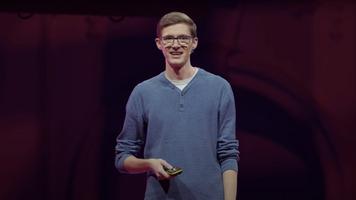
What do we mean exactly when we say we're wasting time? Doing something that doesn't help us acquire new skills, money or status? Stop-motion animator Alexander Leitner explains how "productivity" is relative and that the many seemingly unproductive things we do during the day can be just as crucial to our wellbeing as the "important" stuff.
Robert Thurman: We can be Buddhas
Eldridge Adams: Can animals be deceptive?
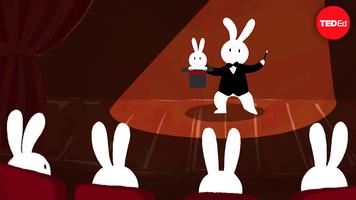
A male firefly emits a series of enticing flashes. He hopes a female will respond and mate with him. A female from a different species mimics his patterns: by tricking the male, she lures him in -- and turns him into a meal. Where else do we see this kind of trickery in the animal kingdom? Eldridge Adams details the surprising complexity of how ...
Gil Weinberg: Can robots be creative?

People have been grappling with the question of artificial creativity -- alongside the question of artificial intelligence -- for over 170 years. For instance, could we program machines to create high quality original music? And if we do, is it the machine or the programmer that exhibits creativity? Gil Weinberg investigates this creative conund...
Mark Liddell: How statistics can be misleading
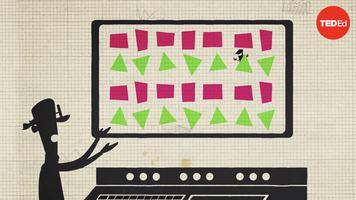
Statistics are persuasive. So much so that people, organizations, and whole countries base some of their most important decisions on organized data. But any set of statistics might have something lurking inside it that can turn the results completely upside down. Mark Liddell investigates Simpson's paradox. [Directed by Mike Foster and Tom Sande...
Sheila Marie Orfano and Densho: Can stereotypes ever be good?
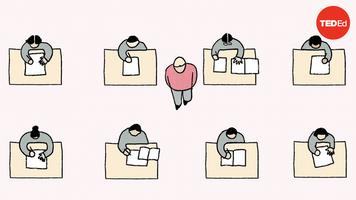
In 2007, researchers surveyed 180 teachers to understand if they held stereotypes about their students. The most commonly held opinion was that Asian students were significantly more industrious, intelligent, and gentle. This might seem like a good thing, but treating this stereotype as reality can cause a surprising amount of harm. Densho and S...
Avi Rubin: All your devices can be hacked
Linden Vazey: Can you be yourself at work?
Kare Anderson: Be an opportunity maker
Fabio Pacucci: Can a black hole be destroyed?
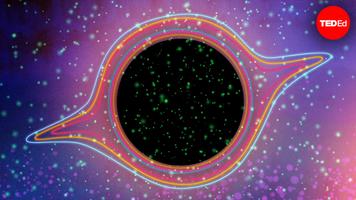
Black holes are among the most destructive objects in the universe. Anything that gets too close to a black hole, be it an asteroid, planet, or star, risks being torn apart by its extreme gravitational field. By some accounts, the universe may eventually consist entirely of black holes. But is there any way to destroy a black hole? Fabio Pacucci...
David R. Flum: What does appendix pain feel like?
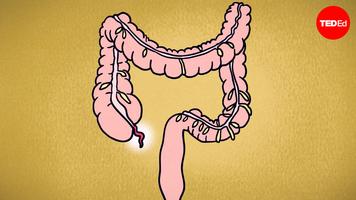
In 1961, an Antarctic expedition took a harrowing turn: Dr. Leonid Rogozov began feeling feverish, with an excruciating pain in his right side. It soon became clear that he had appendicitis. While Rogozov’s predicament was extreme, appendicitis is not uncommon; affecting roughly one in 12 people. So, what causes appendicitis? And why is this org...
Moreangels Mbizah: How community-led conservation can save wildlife
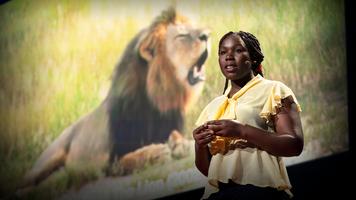
Conservationist and TED Fellow Moreangels Mbizah studied the famous Cecil the lion until he was shot by a trophy hunter in 2015. She wonders how things could've gone differently, asking: "What if the community that lived next to Cecil was involved in protecting him?" In a quick talk, Mbizah shares the state of conservation in her home of Zimbabw...
Adam Cutler: Can we be friends with our AI?
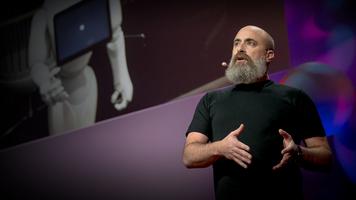
What if we could form meaningful relationships with AI? IBM designer Adam Cutler argues that we're already doing this -- we name our cars and mourn our iPhones when they break -- but imagine if we could develop a deeper emotional bond with our machines. By interpreting intent through language and pairing it with tone and semantic analysis in rea...
Dan Kwartler: How fast can a vaccine be made?
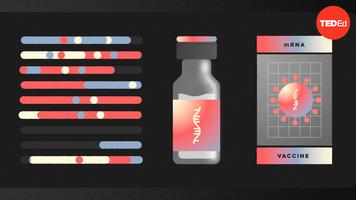
When a new pathogen emerges, our bodies and healthcare systems are left vulnerable. And when this pathogen causes the outbreak of a pandemic, there's an urgent need for a vaccine to create widespread immunity with minimal loss of life. So how quickly can we develop vaccines when we need them most? Dan Kwartler describes the three phases of vacci...
Paul Bloom: Can prejudice ever be a good thing?
Eric Mibuari: Can credit scores be determined by cellphone data?
Justin Baldoni: Why I'm done trying to be "man enough"
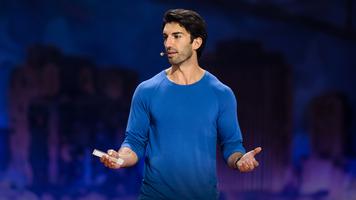
Justin Baldoni wants to start a dialogue with men about redefining masculinity -- to figure out ways to be not just good men but good humans. In a warm, personal talk, he shares his effort to reconcile who he is with who the world tells him a man should be. And he has a challenge for men: "See if you can use the same qualities that you feel make...
Michael Vazquez and Raye Ploeger: Can humans be trusted with control over genetics?
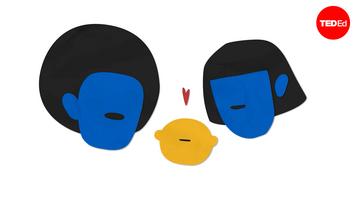
Andre and Leslie are a deaf couple who have decided to have a child, and they’re considering using a process to ensure deafness in their child. As deaf parents, they feel they could provide better guidance to a child that would share their lived experience and grow up immersed in deaf culture. But is this genetic intervention ethical? Michael Va...
Thomas Dohmke: With AI, anyone can be a coder now
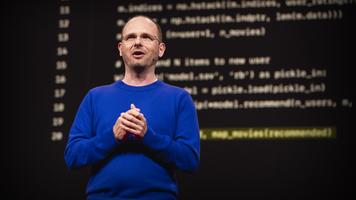
What if you could code just by talking out loud? GitHub CEO Thomas Dohmke shows how, thanks to AI, the barrier to entry to coding is rapidly disappearing — and creating software is becoming as simple (and joyful) as building LEGO. In a mind-blowing live demo, he introduces Copilot Workspace: an AI assistant that helps you create code when you sp...
Bob Inglis: American bipartisan politics can be saved -- here's how
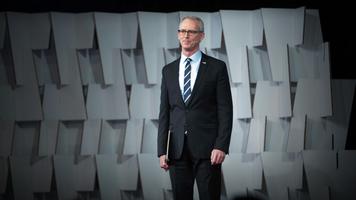
Former Republican member of the U.S. Congress Bob Inglis shares an optimistic message about how conservatives can lead on climate change and other pressing problems -- and how free enterprise (and working together across ideologies) hold the solutions. "The United States was not built by those who waited and wished to look behind them," Inglis s...
Ryan Martin: Why some anger can be good for you
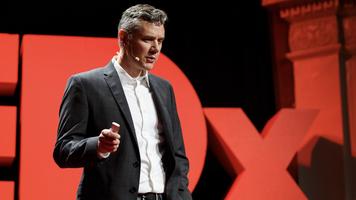
Anger researcher Ryan Martin draws from a career studying what makes people mad to explain some of the cognitive processes behind anger and why a healthy dose of it is, in fact, useful. "Your anger exists in you because it offered your ancestors an evolutionary advantage," he says. "It's a powerful and healthy force in your life."
John O'Donnell: Can a simple brick be the next great battery?
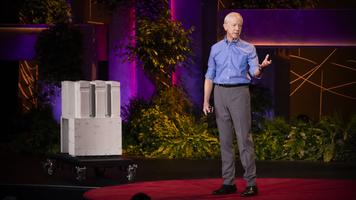
The world relies on manufacturing, and manufacturing relies on heat — a massive contributor to global carbon emissions, responsible for a quarter of the world's fossil fuel use. Energy entrepreneur John O'Donnell has figured out a better, cleaner way to generate the heat we need to make the stuff we want. Learn how his team turned simple bricks ...
Alex Gendler: Why are airplanes slower than they used to be?
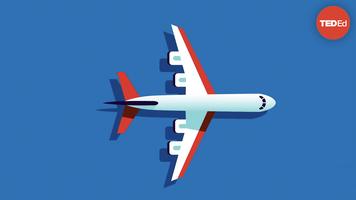
In 1996, a British Airways plane flew from New York to London in a record-breaking two hours and fifty-three minutes. Today, however, passengers flying the same route can expect to spend no less than six hours in the air — twice as long. So why, in a world where everything seems to be getting faster, have commercial flights lagged behind? Alex G...

